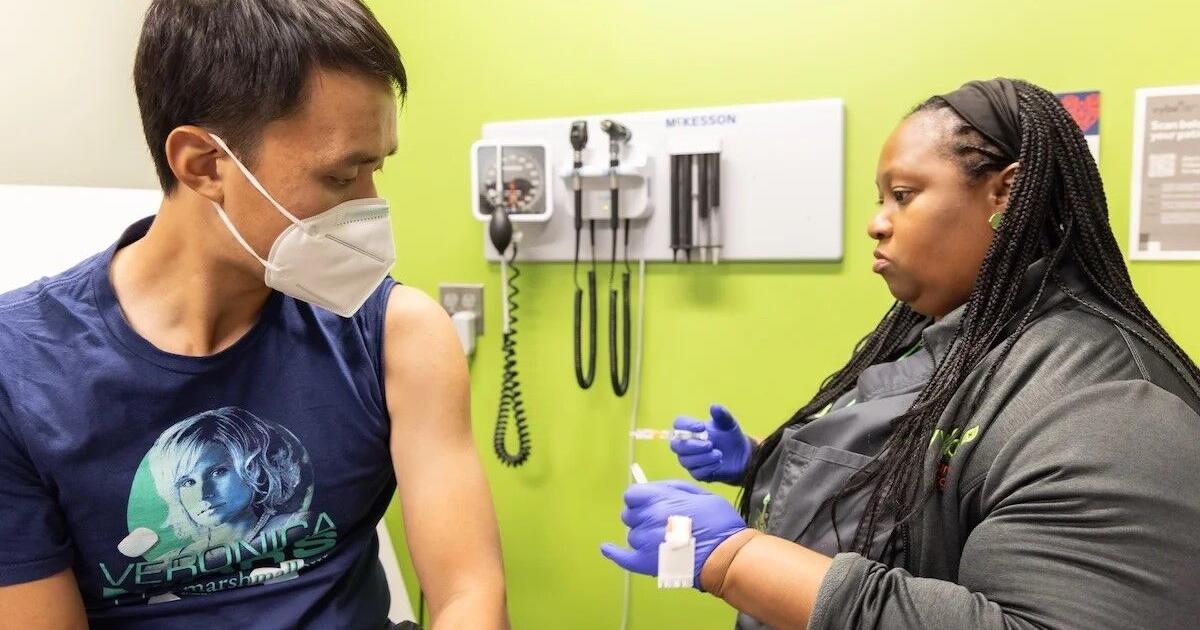Urgent care physician Franz Ritucci remembers what it was like going to a medical conference 20 years ago and how other doctors responded when he told them where he worked.
“I saw everyone’s eyes kind of go down. It was like, ‘ugh, an urgent care.’ That was the time when those facilities were called ‘doc in a box,’” he said.
The “doc in the box” label hasn’t fully come off. If your family doctor is a locally-run restaurant, then urgent care is McDonald’s.
Urgent care centers have been around since the 1970s, but more recently the expansion in this sector has been explosive.
“It has grown … like fire,” said Ritucci.
Over the last decade or so, the number of urgent care centers in the U.S. has doubled — from more than 7,000 to more than 14,000, according to the Urgent Care Association.
Part of that growth comes from private equity firms, which use money from wealthy investors or large institutions to buy other companies that are not on the stock market, aiming to make a quick profit. Private equity has invested billions of dollars into hundreds of urgent care clinics across the U.S.
As of 2024, more than 2,300 urgent care centers are backed by private equity investment, according to the Journal of Urgent Care Medicine.
The investment leads to more health care access and helps relieve busy hospitals, especially in rural parts of the country, according to the American Investment Council, an advocacy organization that represents private equity firms.
Ritucci, who is now the president of the American Academy of Urgent Care Medicine, said urgent care clinics address a previously unmet need in health care — patients who have an ear infection or a sore throat and cannot easily get a last-minute appointment at their primary care doctor but whose ailments are not serious enough to warrant an emergency room visit.
“Urgent care centers have become the reliever airport for our broken system,” Ritucci said.
There is a lot of demand for the services that urgent care clinics provide, so much so that doctors opening their own clinics could not address it all on their own, said Peter Hotz, CEO of Vybe Urgent Care.
A few years ago, a private equity firm invested in his company and helped it grow. Today, Hotz runs 16 Vybe clinics in the Philadelphia region.
“They have never once told me or my team how to run the business, what kind of care to provide or anything like that. They’ve been really a source of capital, a source of judgment and an assistance to us as we’ve had to make challenging decisions as we grow the business,” he explained.
However, private equity investment is not always a good deal for urgent care doctors, Ritucci said. He has been in the business for so long that other urgent care doctors sometimes ask him for advice when private equity investors come calling with offers.
Ritucci tells doctors that if the business is thriving and could grow, then the investment could be good. But if the urgent care clinic is struggling and the doctor needs the investment to survive, he advises them to cut costs or close down.
He explained that if a clinic is already finding it hard to survive, then private equity investment will put more pressure on it to find more patients quickly.
“If you’re hurting, that you need the money to grow, then … equity is the way and you’ll sell your soul in order to survive and move,” Ritucci said.
Part of the pressure comes from the way private equity operates — firms are looking to turn a profit quickly, explained Jessa Loomis, an economic geographer at Newcastle University in the U.K.
She has studied private equity in health care markets, including urgent care centers.
Loomis added that even if an urgent care business goes under, a private equity investor can still make a profit by selling the business or the real estate where the clinics once stood.
“Part of that is the financial engineering, financial mechanisms at play that allow them to basically take their returns and run,” she said.
—
**Stay informed and connected — subscribe to The Philadelphia Tribune NOW! [Click Here]**
—
### Community Guidelines Reminder:
– **Keep it Clean:** Please avoid obscene, vulgar, lewd, racist, or sexually-oriented language.
– **Don’t Threaten:** Threats of harming another person will not be tolerated.
– **Be Truthful:** Don’t knowingly lie about anyone or anything.
– **Be Nice:** No racism, sexism, or any sort of -ism that is degrading to another person.
– **Be Proactive:** Use the ‘Report’ link on each comment to let us know of abusive posts.
– **Share with Us:** We’d love to hear eyewitness accounts and the history behind an article.
—
*Misty Copeland broke barriers as the first Black female principal dancer with American Ballet Theatre. Now, through her nonprofit, she’s making dance more accessible for children of color.*
https://www.phillytrib.com/news/health/why-urgent-care-clinics-once-derided-as-doc-in-a-box-have-spread-like-wildfire/article_e3e740b8-c29f-4990-81a5-57b1ac74f6d9.html
